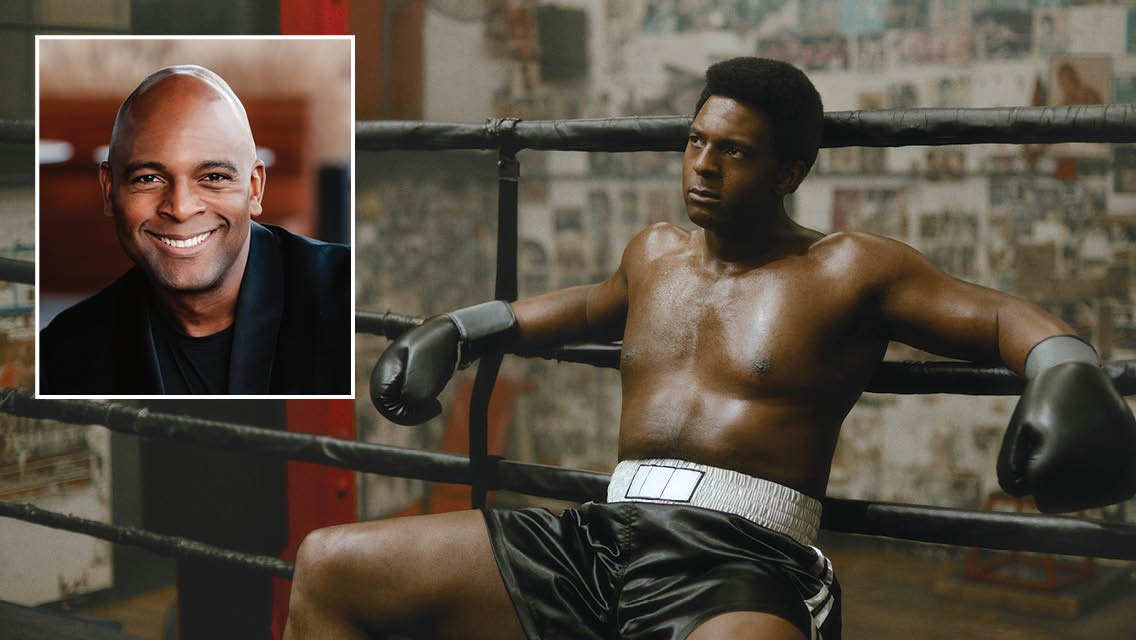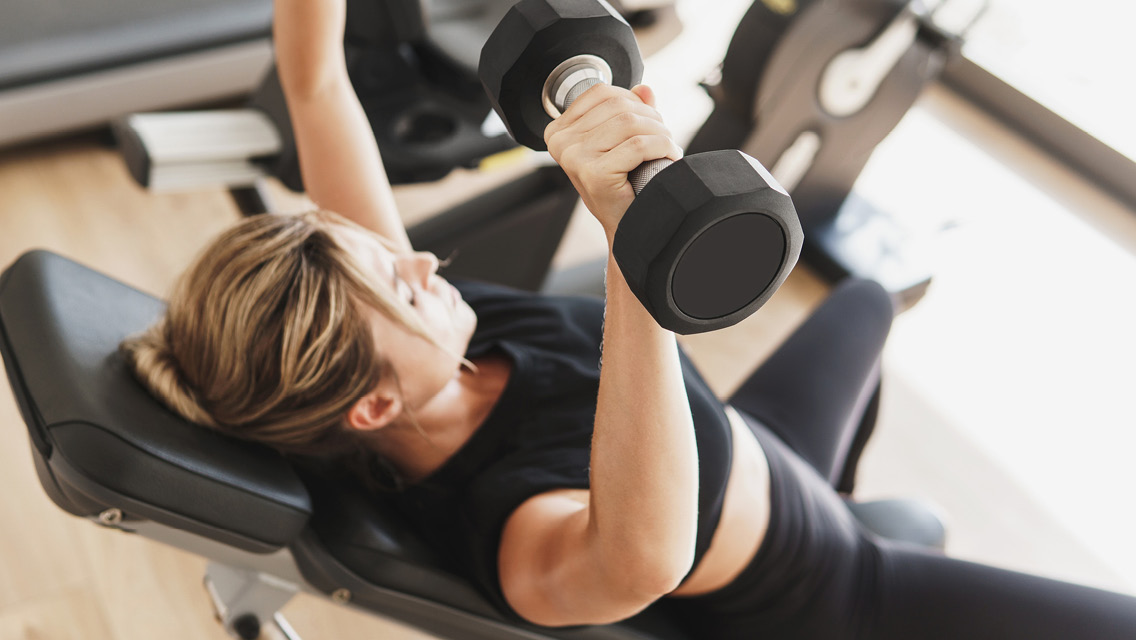See Speedo’s Top 3 Tips for Success
I’ve always been a person who doesn’t give up. I was raised in a tumultuous, low-income household in Virginia, where I experienced harder times as a child than I have so far as an adult. But after years of building my career as a bass-baritone opera singer, losing the ability to work during the COVID-19 pandemic hit hard.
In early 2020, I left a salaried position and became a full-time freelance artist. When performing arts venues suddenly closed, there were no more shows, which meant that many people lost their livelihood — including me.
I know many performers who remember that day well. At the time, I was living in Vienna, Austria, where protocols were even stricter than they were in the United States. I lost all my contracts — at least nine months of work.
When this happened, my wife, Irene, was seven months pregnant with our second child, and our first child was 2 years old. I felt hopeless, as if I were letting my family and myself down after all I’d worked toward in my career. I went into a bit of a depression. I didn’t leave my house and spent most of my time sitting on the couch doing nothing.
After a few months of this, Irene had had enough of my wallowing. “I know you’re better than this,” she said. “You’ve been through much worse. If you can’t work on your voice and you can’t perform, then you need to work on something else.”
Irene encouraged me to start taking daily walks. “Just go clear your head and figure out what you want to do,” she suggested.
Taking the First Step
I was never a fitness guy, or even what a person might call “in shape.” I had never lifted a weight, done cardio, or engaged in traditional exercise. And I had never paid any attention to nutrition.
When I went on my first outdoor walk, I barely took 2,000 steps. I was huffing and puffing, but it felt great. I felt as though I were dropping my sadness and depression out there with my sweat.
After a week or two, I was up to 5,000 steps per day. Then the next thing I knew, I was doing 10,000 steps every day.
Meanwhile, I didn’t want to compromise my healthy-movement progress by falling back on old eating habits like avoiding vegetables and consuming a lot of red meat. It was a kind of snowball effect: I wanted to eat better to support my new, healthier lifestyle habits.
Although I’d never been into fitness or nutrition, Irene had always been passionate about healthy living. She was studying for nutritionist certifications in Europe, and I wanted to tap into her wealth of knowledge.
“Fitness has helped me discover so much about myself and the things I can achieve.”
She taught me about her food-and-nutrition philosophy, and we started cooking and eating more meals together. It was something we could share and connect on. I incorporated fish once per week and limited red meat. I made healthier swaps: Instead of eating a hamburger, I would have a chicken burger, for instance.
I felt the benefits of the change in my walks and in my daily life over the next several months.
By that time, it was the winter of 2020, and opera houses were starting to reopen. Because of travel restrictions, many Eastern European singers couldn’t get into the United States, so I had a lot of opportunities there. I took on several roles at the Metropolitan Opera when it reopened in 2021. I had more energy thanks to the lifestyle changes I had made, and this helped me improve what I could do on stage. (One of these productions, Fire Shut Up in My Bones, later earned a Grammy for Best Opera Recording.)
In the fall of 2021, I joined Life Time Sky in New York City as the next step in my fitness journey. I liked being around individuals who were also trying to live healthy lives. But it wasn’t until a few months later that I would get the ultimate motivation boost.
The Role of a Lifetime
In December 2021, I was offered the lead role in Champion, composer Terence Blanchard’s operatic retelling of the story of professional boxer Emile Griffith, at the Met. This was a major turning point in my career — my first lead role at arguably the greatest opera house in the world.
I told Blanchard I was going to take this role very seriously, which meant I needed to get into the best shape of my life. I wanted it to be believable when people saw me on stage throwing and taking punches in a boxing ring.
I had no history with boxing, but the day after I got the role, I saw that Life Time offered beginner boxing classes. I signed up and went to my first class taught by Life Time dynamic personal trainer and boxing coach Joseph Witherspoon. At that first class, I saw a woman throw a punch and immediately knew this was some serious stuff. I had a lot of catching up to do in order to compete with these fierce athletes.
While taking Joseph’s group classes, I could tell how much his boxers knew about the sport and how much respect they had for him as a coach. In February 2022, I asked if we could start one-on-one training sessions. He agreed. We worked together five days a week for over a year to make my performance the best it could be, both by practicing boxing technique and training for strength.
The Met also hired a boxing consultant for the show — former heavyweight champion Michael Bentt. He was with us every day throughout the rehearsal process. It was important to me that he meet Joseph, and when he did, he validated my training plan. By the time Champion officially opened at the Met, in April 2023, I was ready.
I knew preparing for this role would improve my body, but what surprised me most was the mental strength I gained. Boxing isn’t just about throwing punches; it’s a pugilistic chess match. It’s one of the most mental-to-physical sports, and it’s helped me realize I am capable of so much more than I thought I was.
Looking Toward the Future
Like with any sport, you need a rest period — even Olympic athletes take time off from training — so I took some time off from exercising post-show. Going forward, however, I have formed a training-for-life mindset. Now that I know what’s possible, I have no excuse not to maintain at least half the intensity of my routine leading up to the show.
From what Joseph and my friends at Life Time taught me, I’ve established a three-days-per-week workout plan. I started running and jumping rope for cardio because these activities put a little less strain on my body compared with boxing. When I ran my first 5K, it took me about 42 minutes. Recently, I’ve been averaging under 32 minutes, and I’m constantly striving for improvement.
I always knew I was capable of great things, but I never thought I would see definition in my biceps. I never thought I would run a mile in under 10 minutes. And now, as a 37-year-old, I can do that whenever I want. It’s an amazing feeling, and I don’t ever want to lose it.
I want to live a long, healthy life. I want to be there for my kids and chase them around for years to come. Fitness has helped me discover so much about myself and the things I can achieve.
Speedo’s Top 3 Tips for Success
- Just start. “I wouldn’t be where I am today if I hadn’t started with that first 2,000-step walk,” Speedo says. “Wherever you’re at in your journey, find one small first step.”
- Never give up. “If you want to achieve something, failure and pain are inevitable parts of your story. But I think the key is to never do anything half-hearted and to always keep trying,” he says.
- Keep an open mind. Speedo notes that when he started his fitness journey, he was willing to learn, grow, and change. “Whatever you’re trying to do, trust the experts who are able to help you, and be ready to adapt.”
My Turnaround
For more real-life success stories of people who have embraced healthy behaviors and changed their lives, visit our My Turnaround department.
Tell Us Your Story! Have a transformational healthy-living tale of your own? Share it with us!





This Post Has 0 Comments